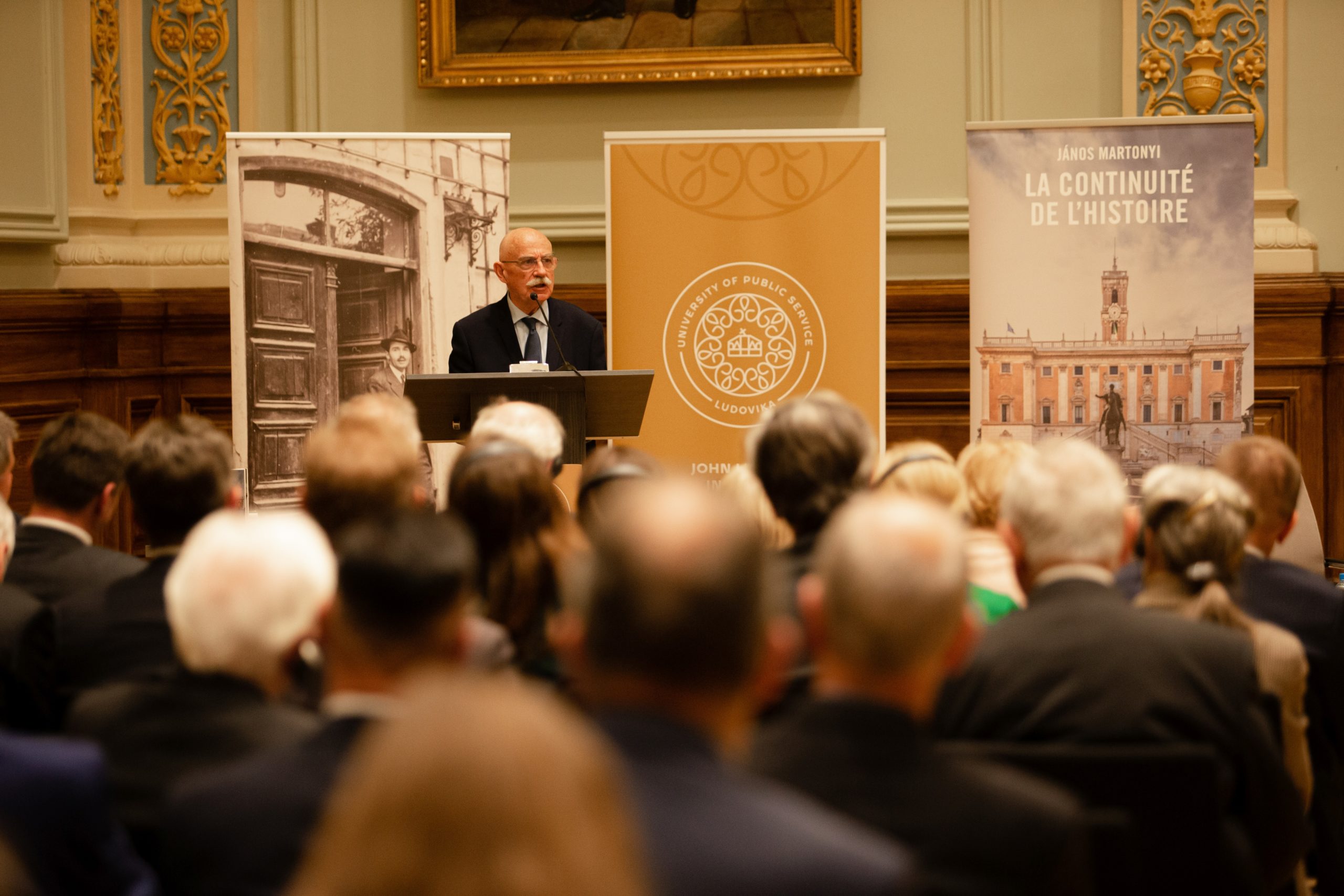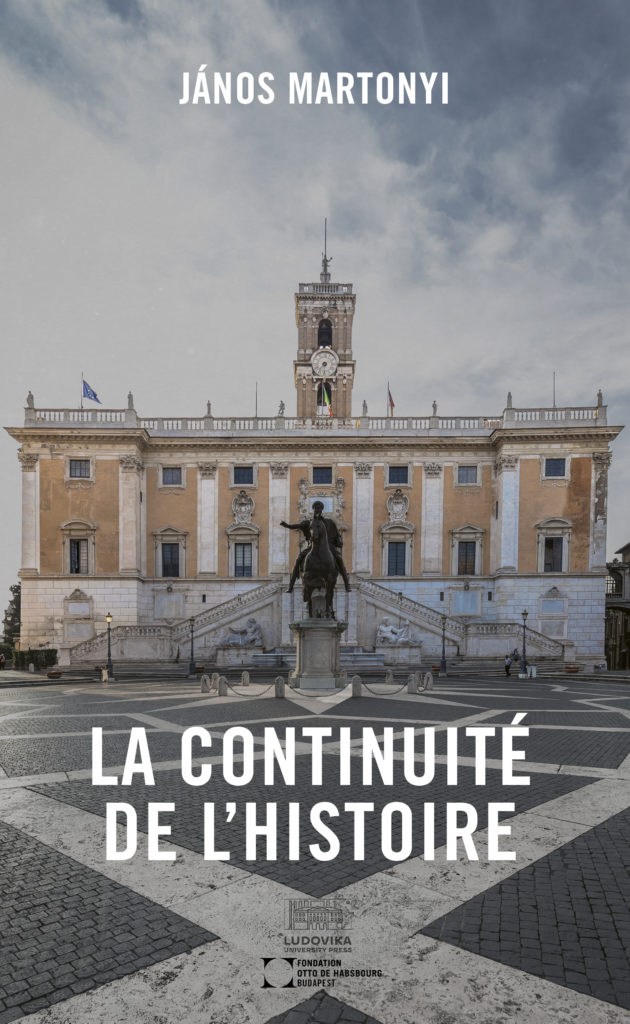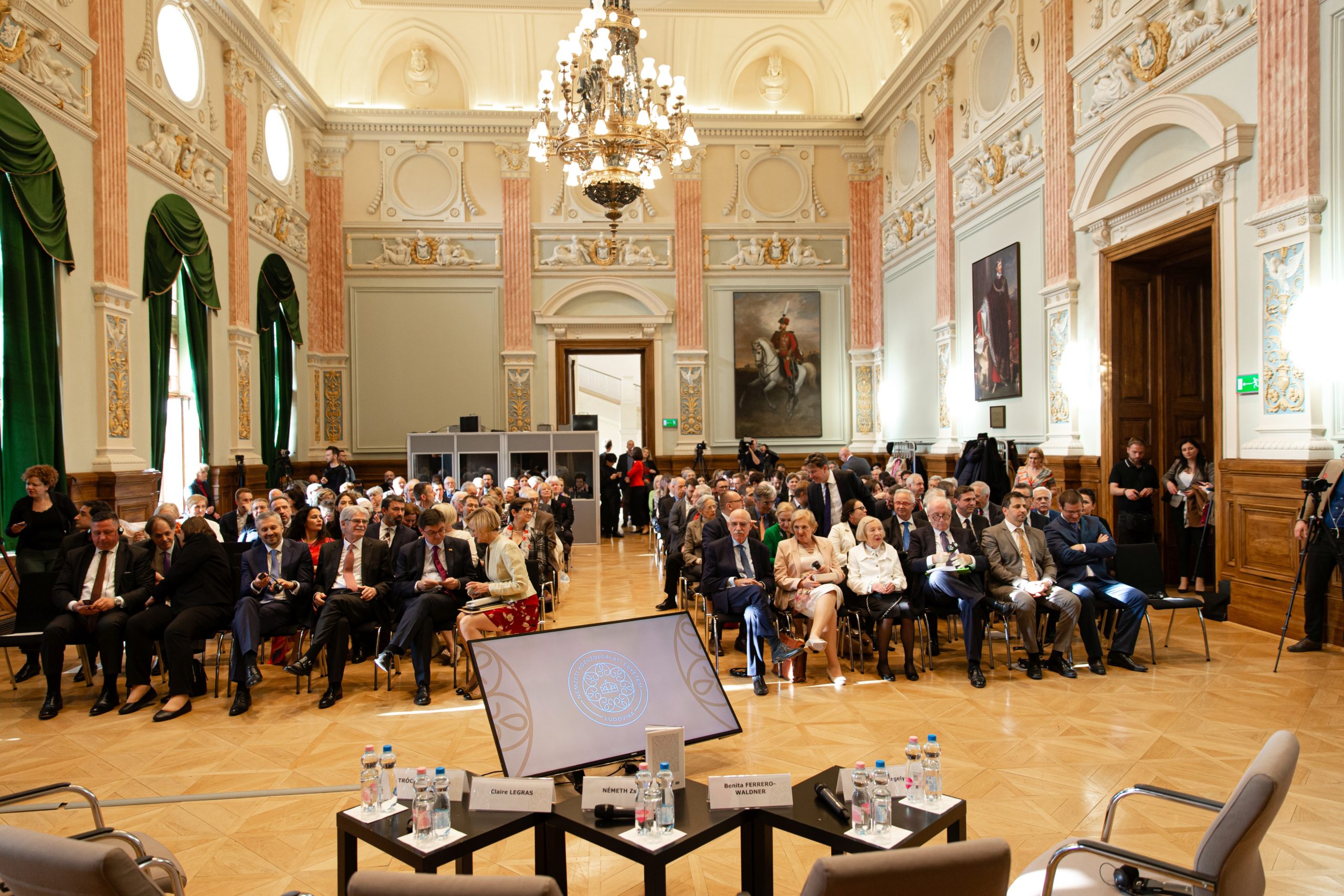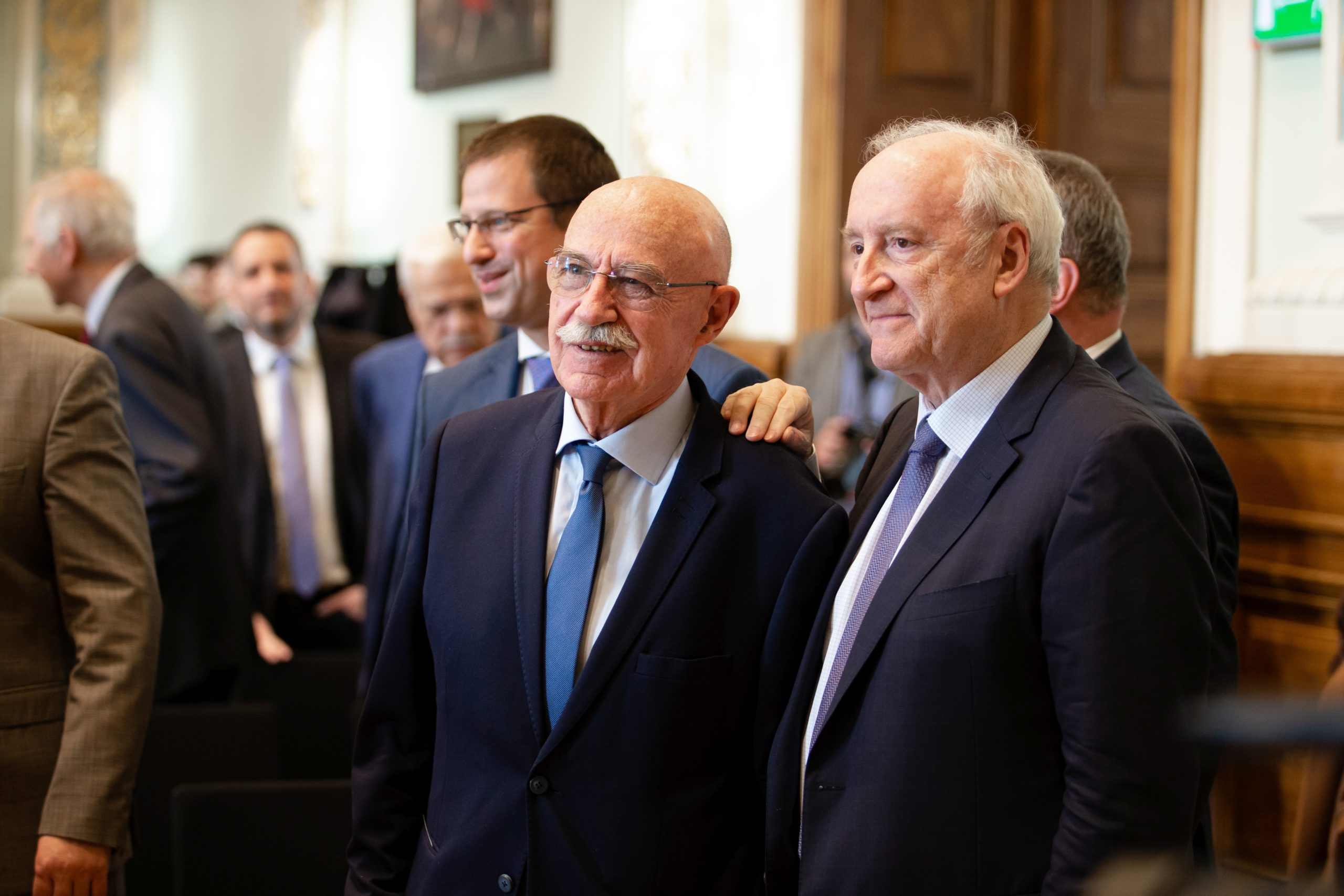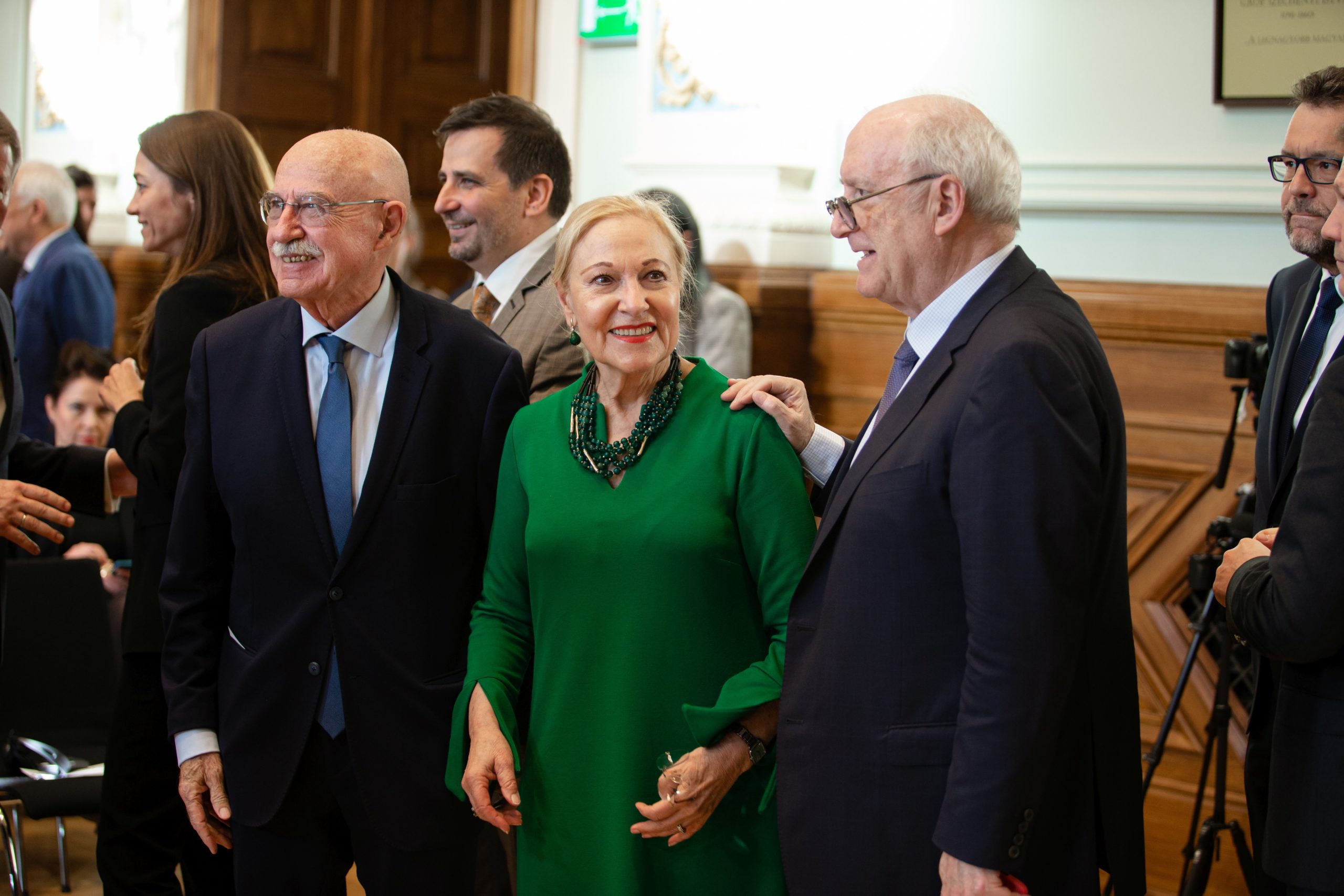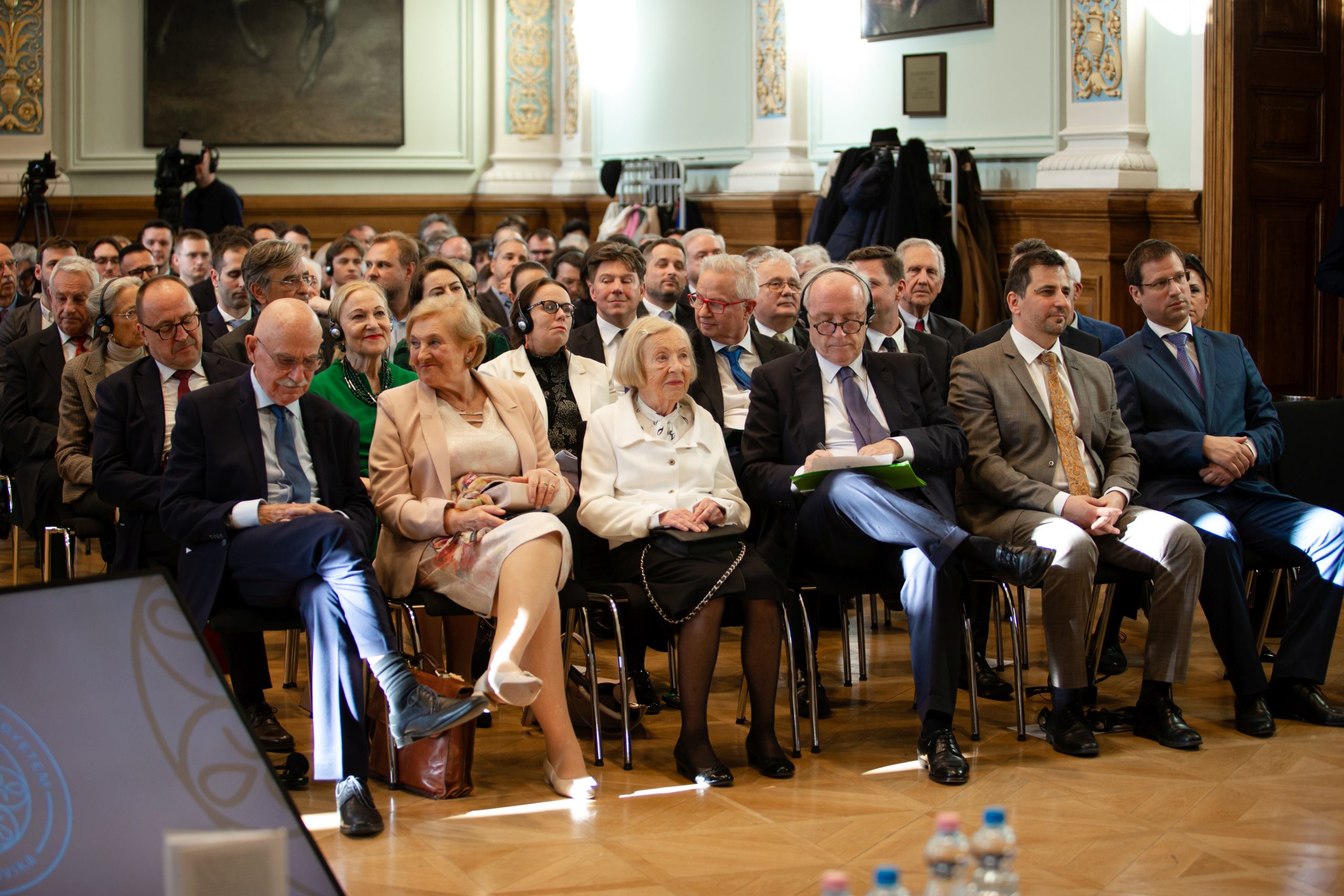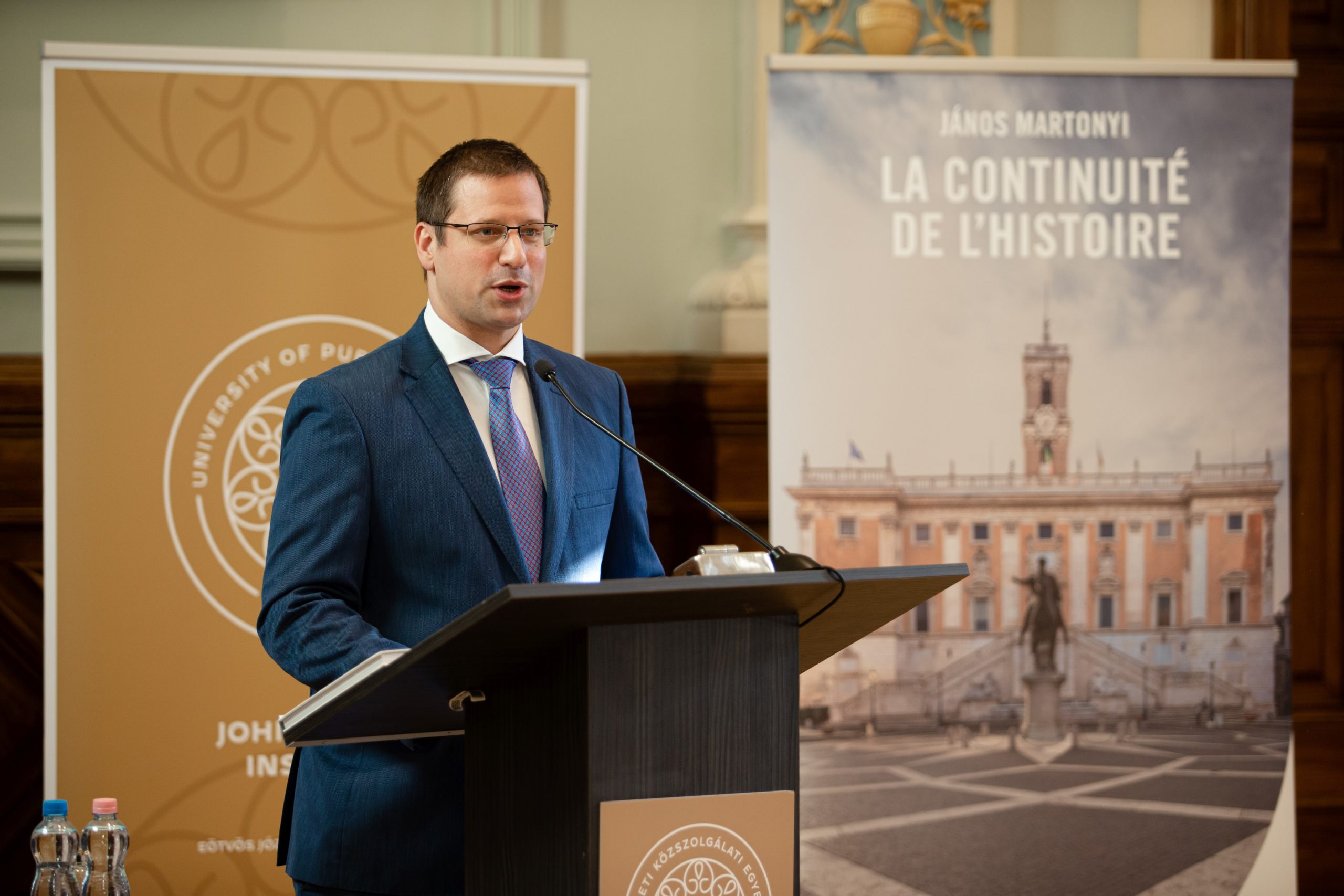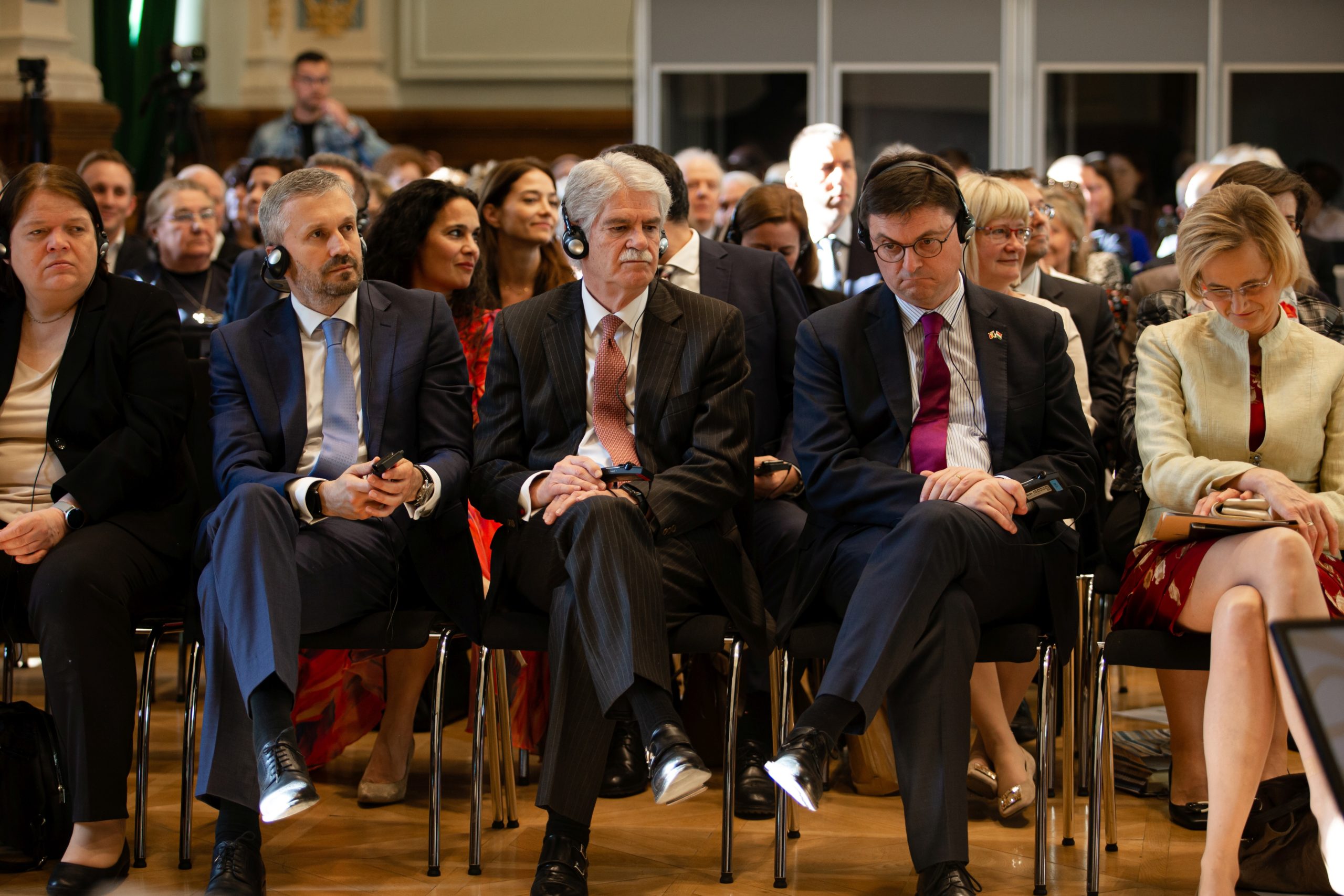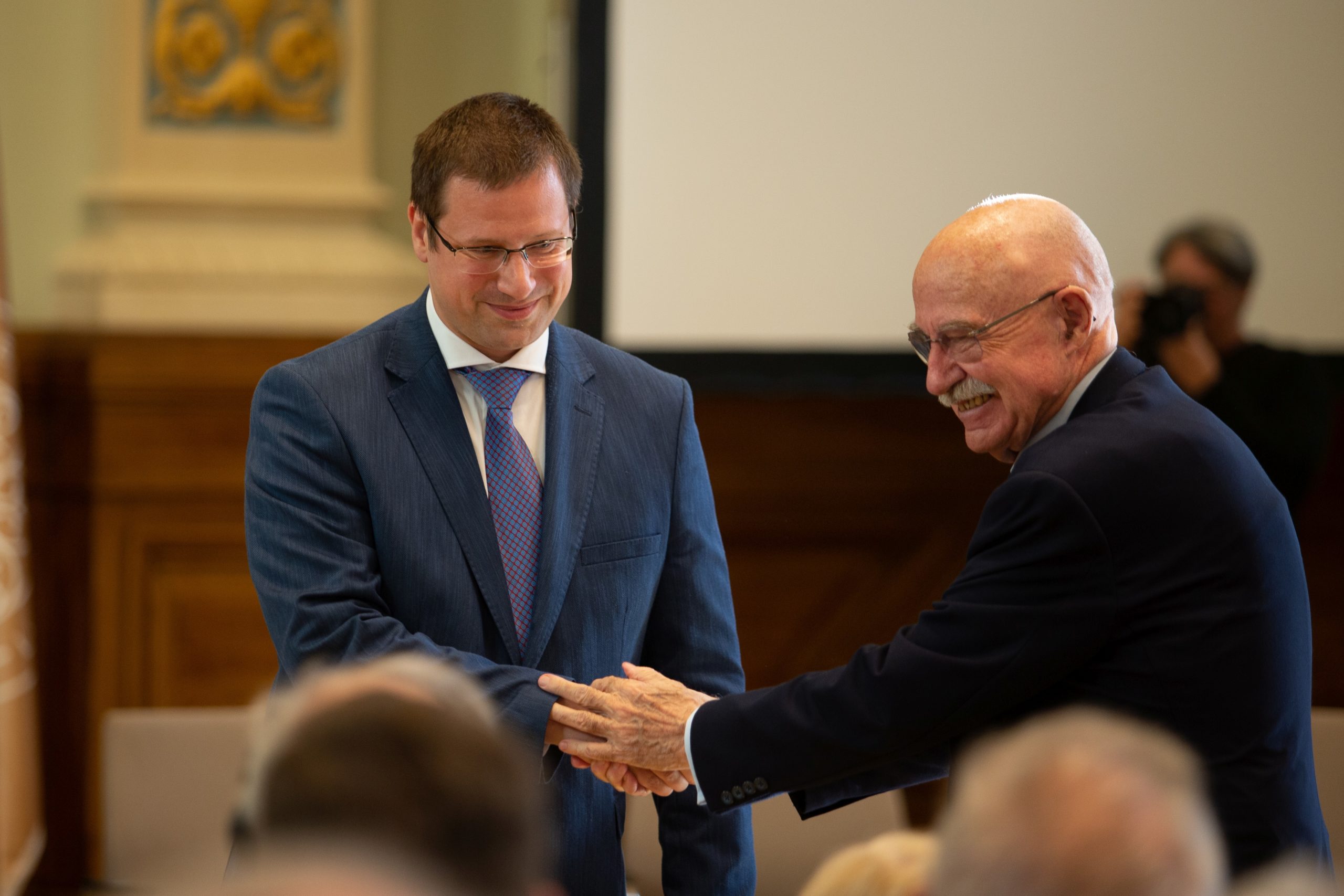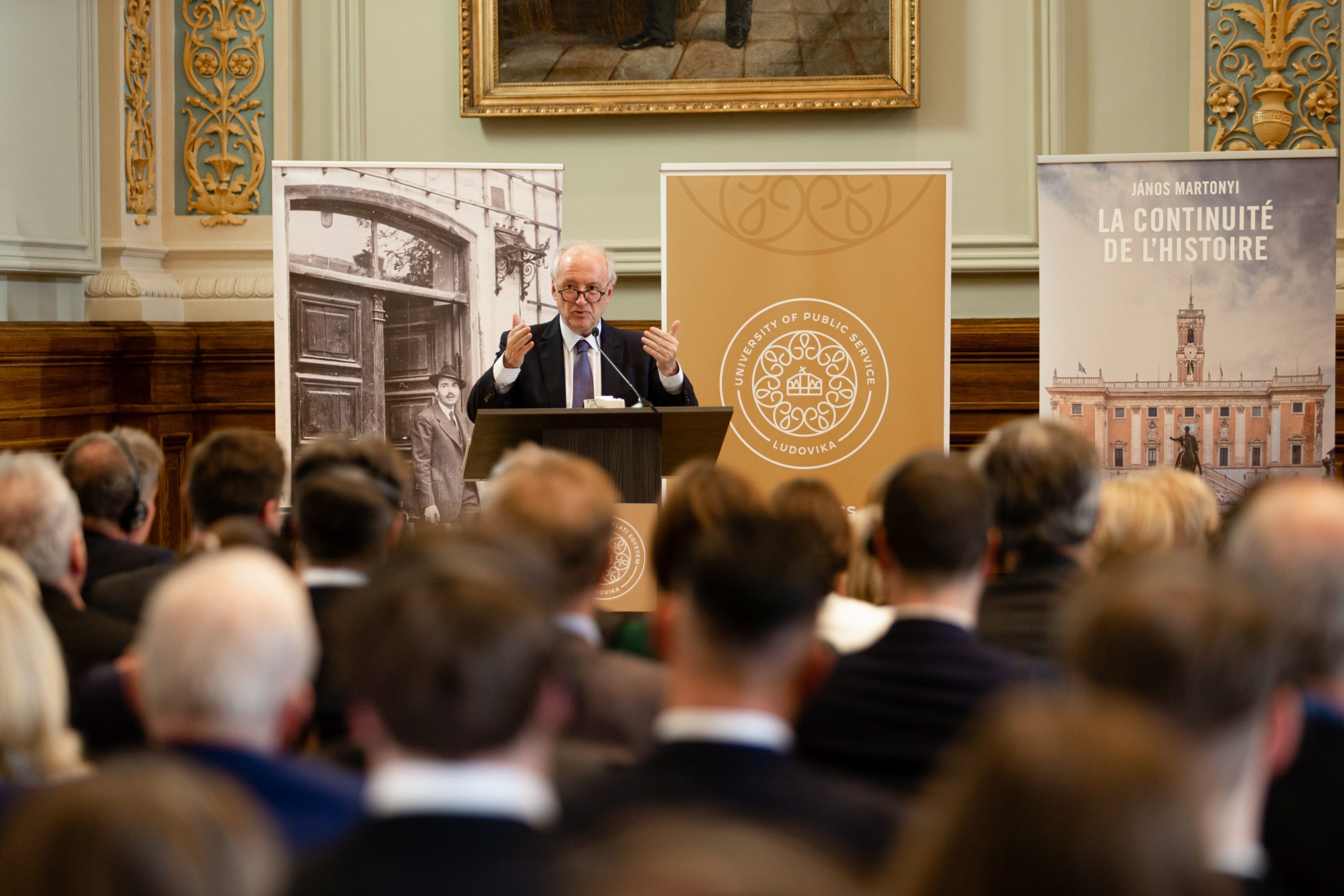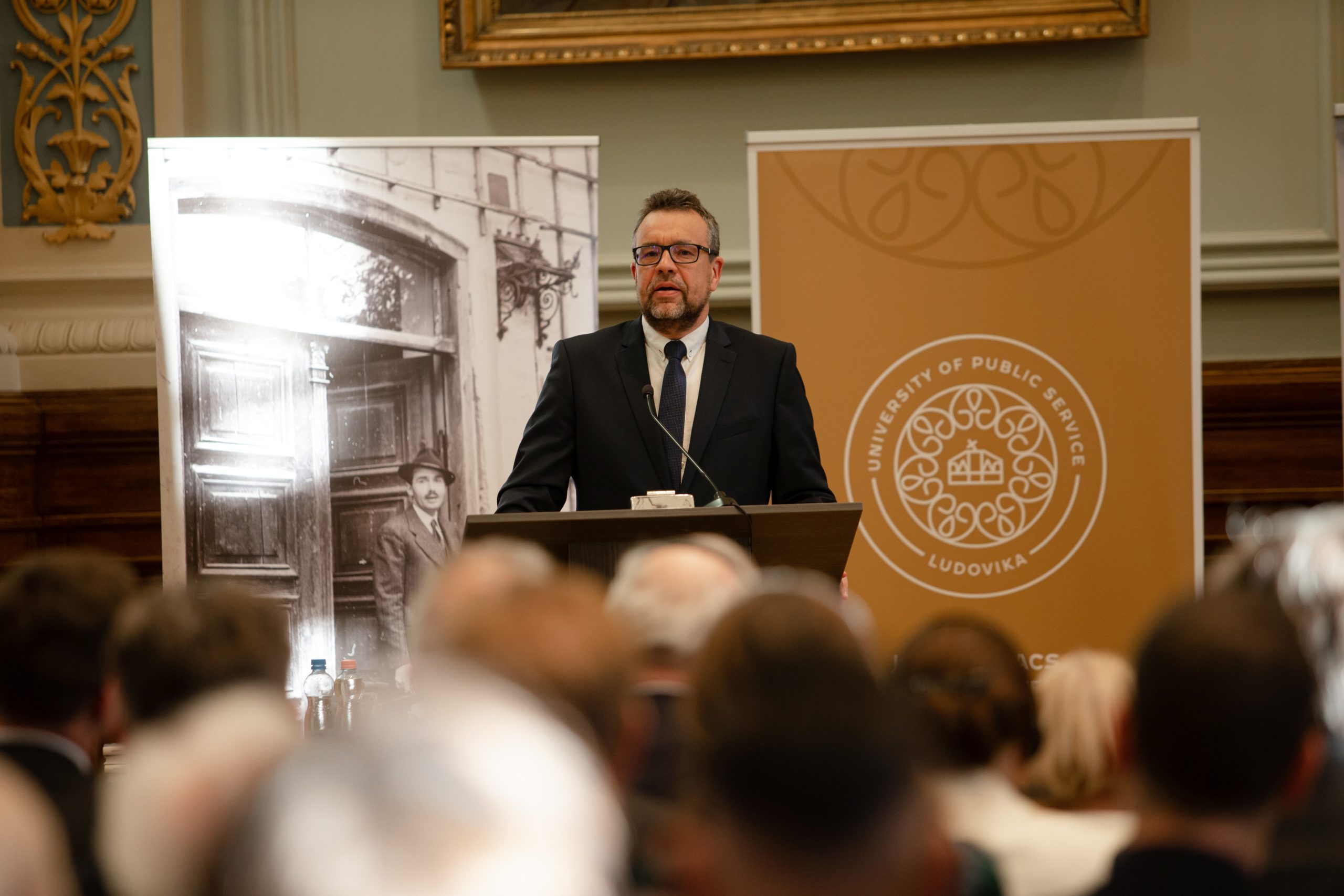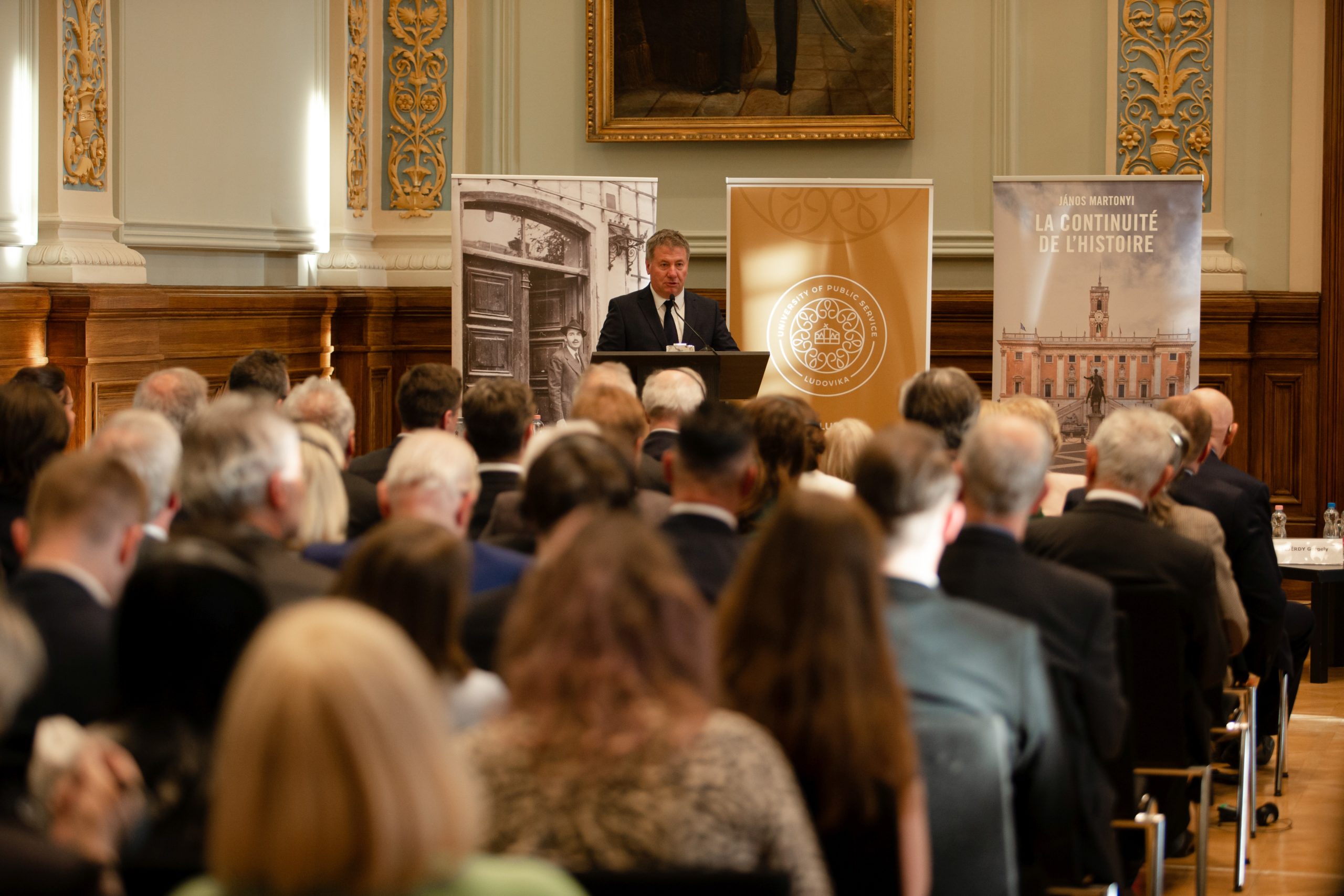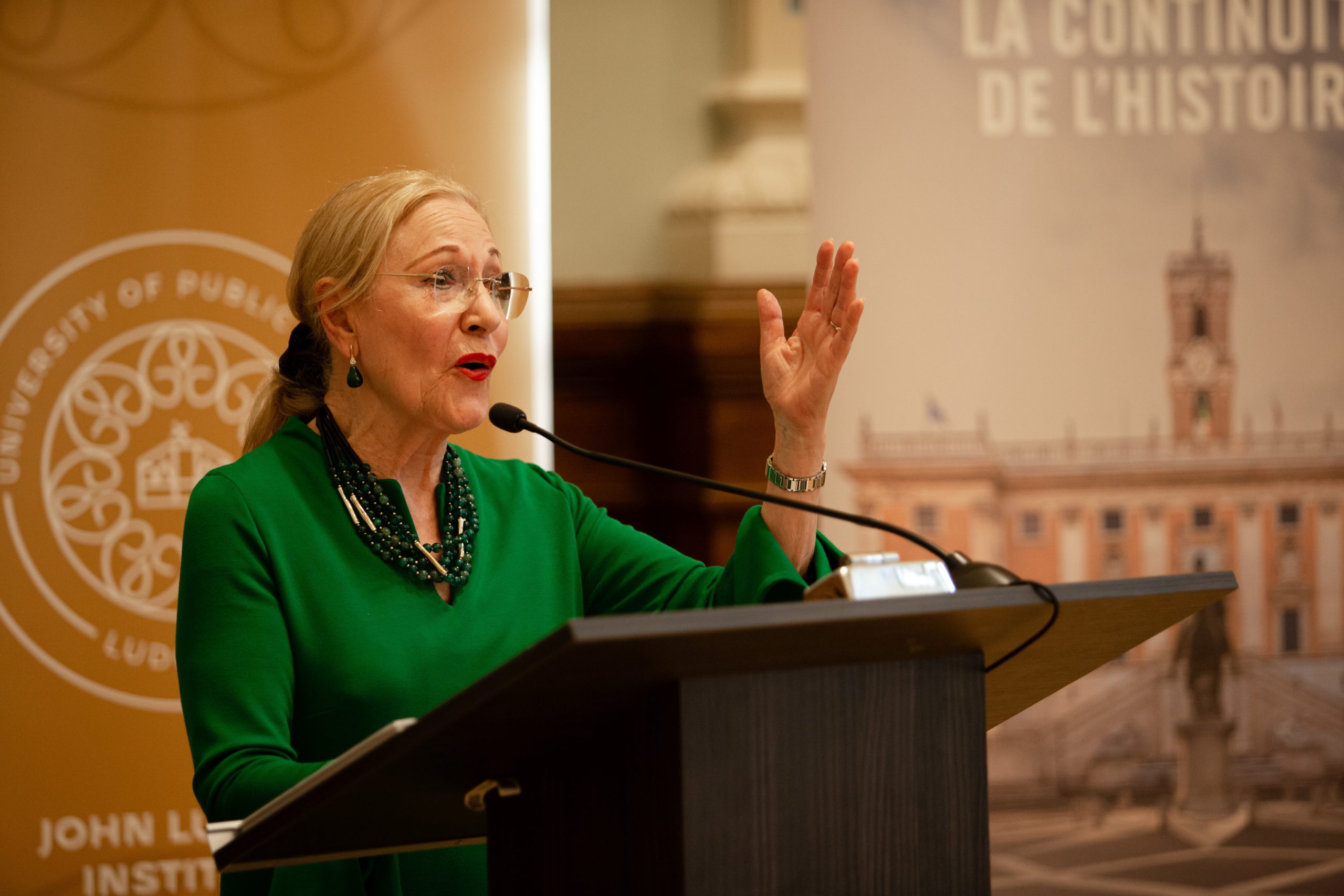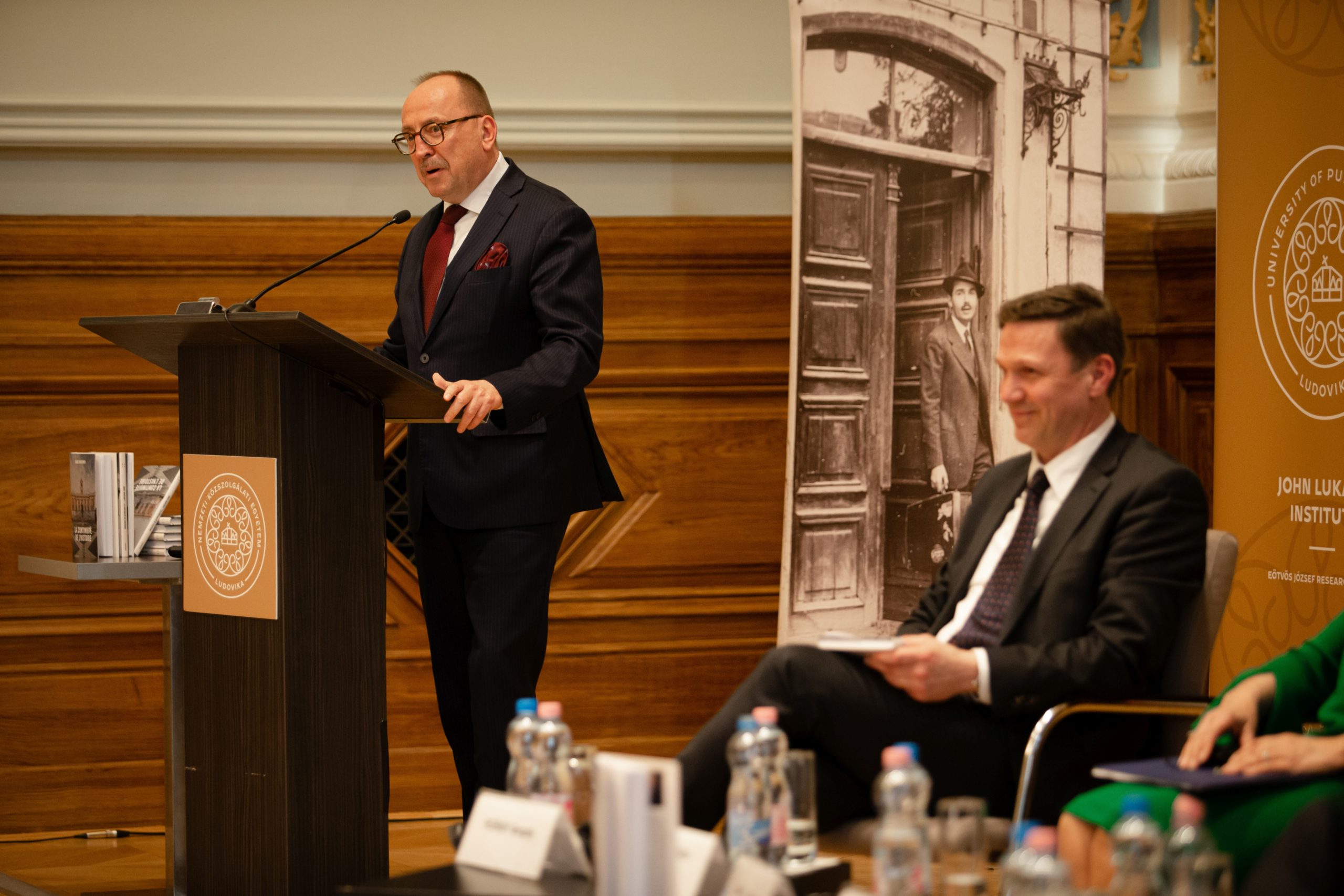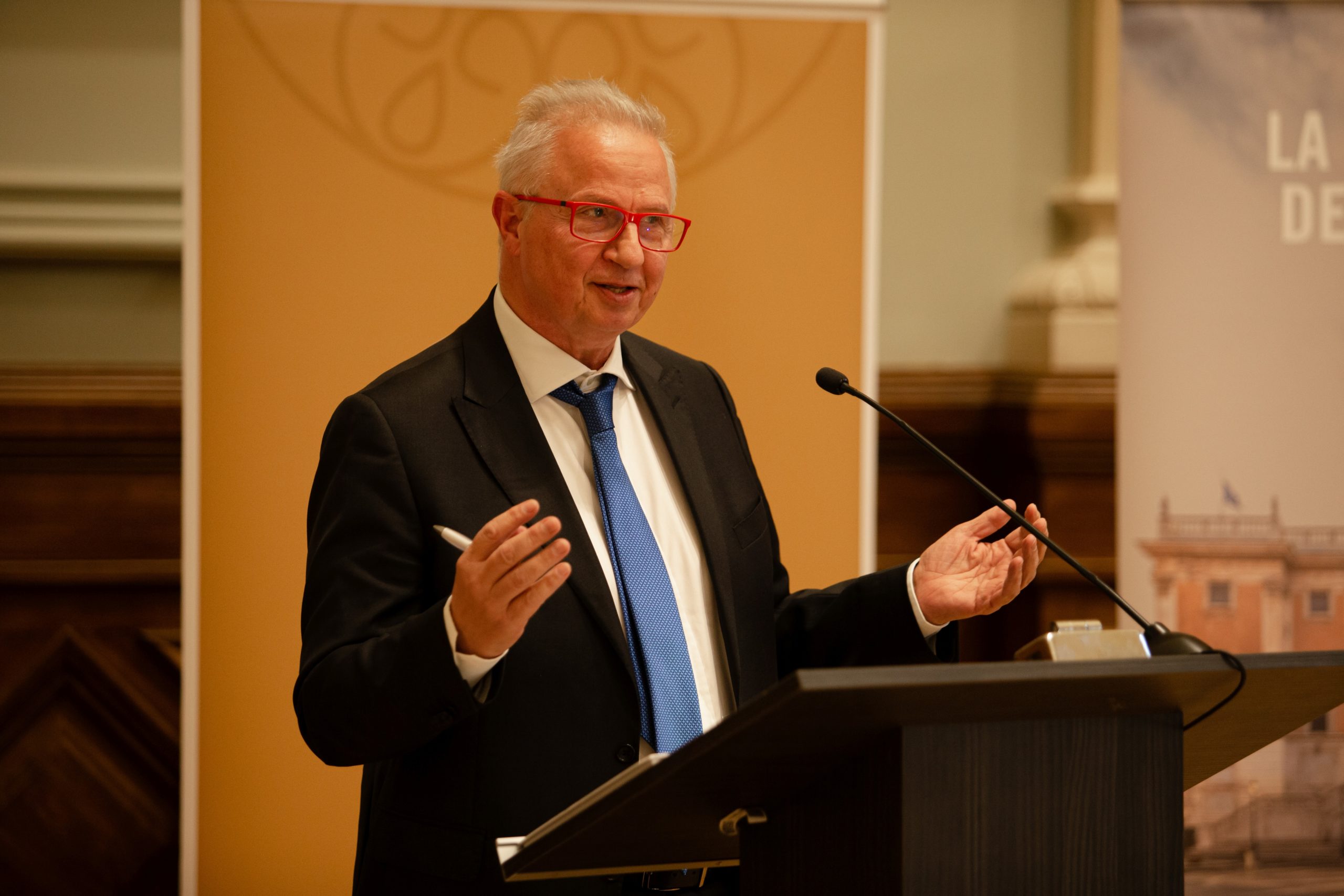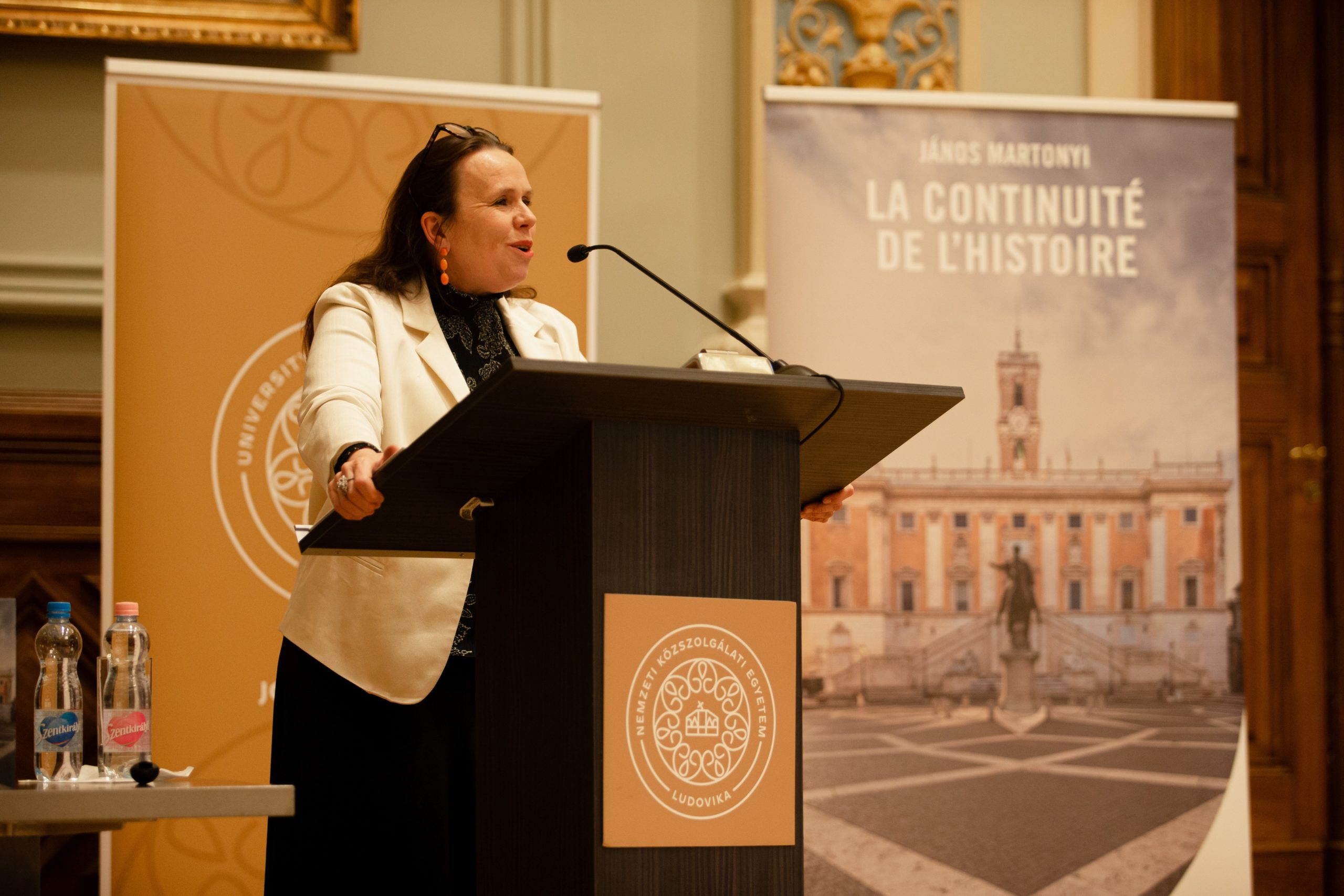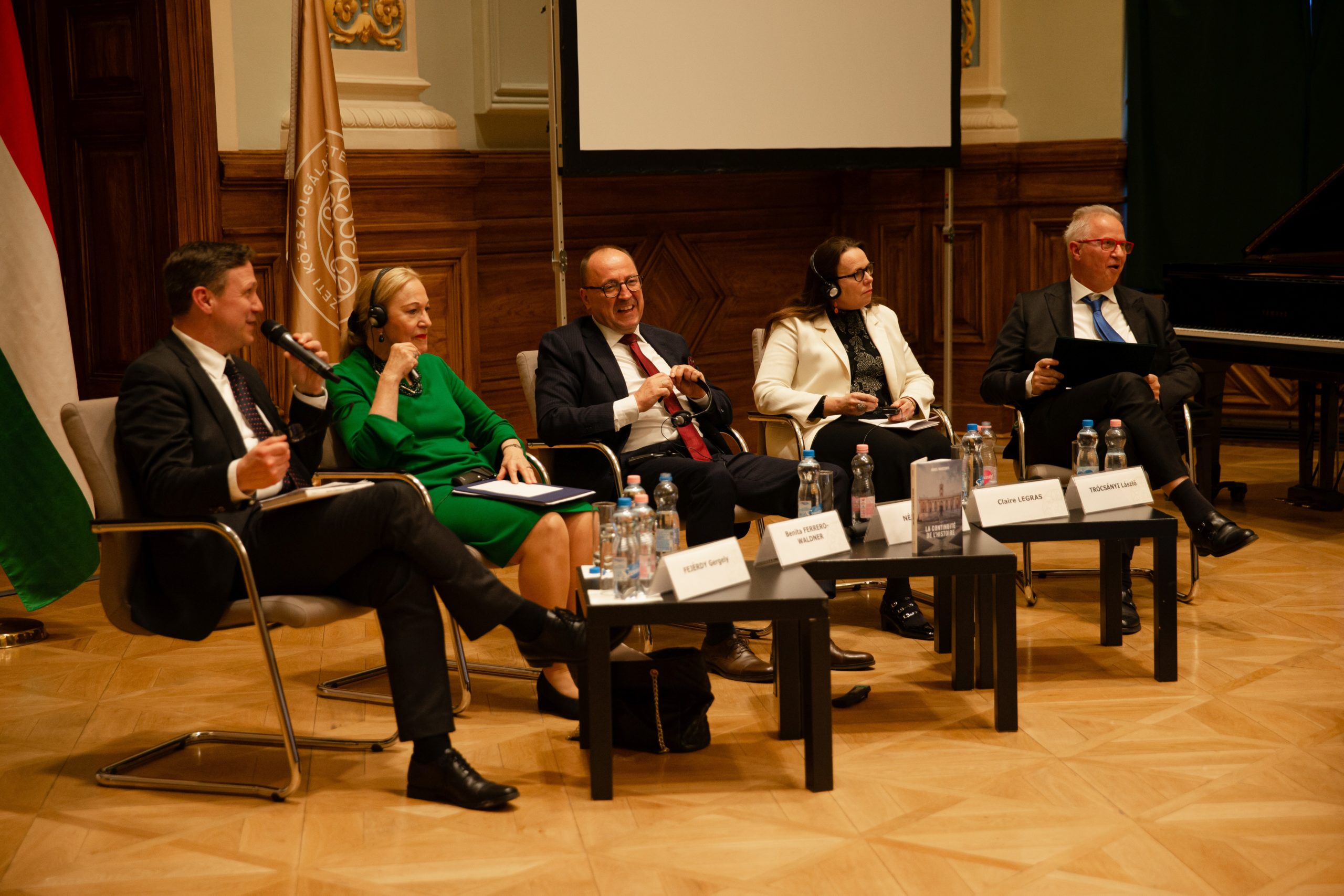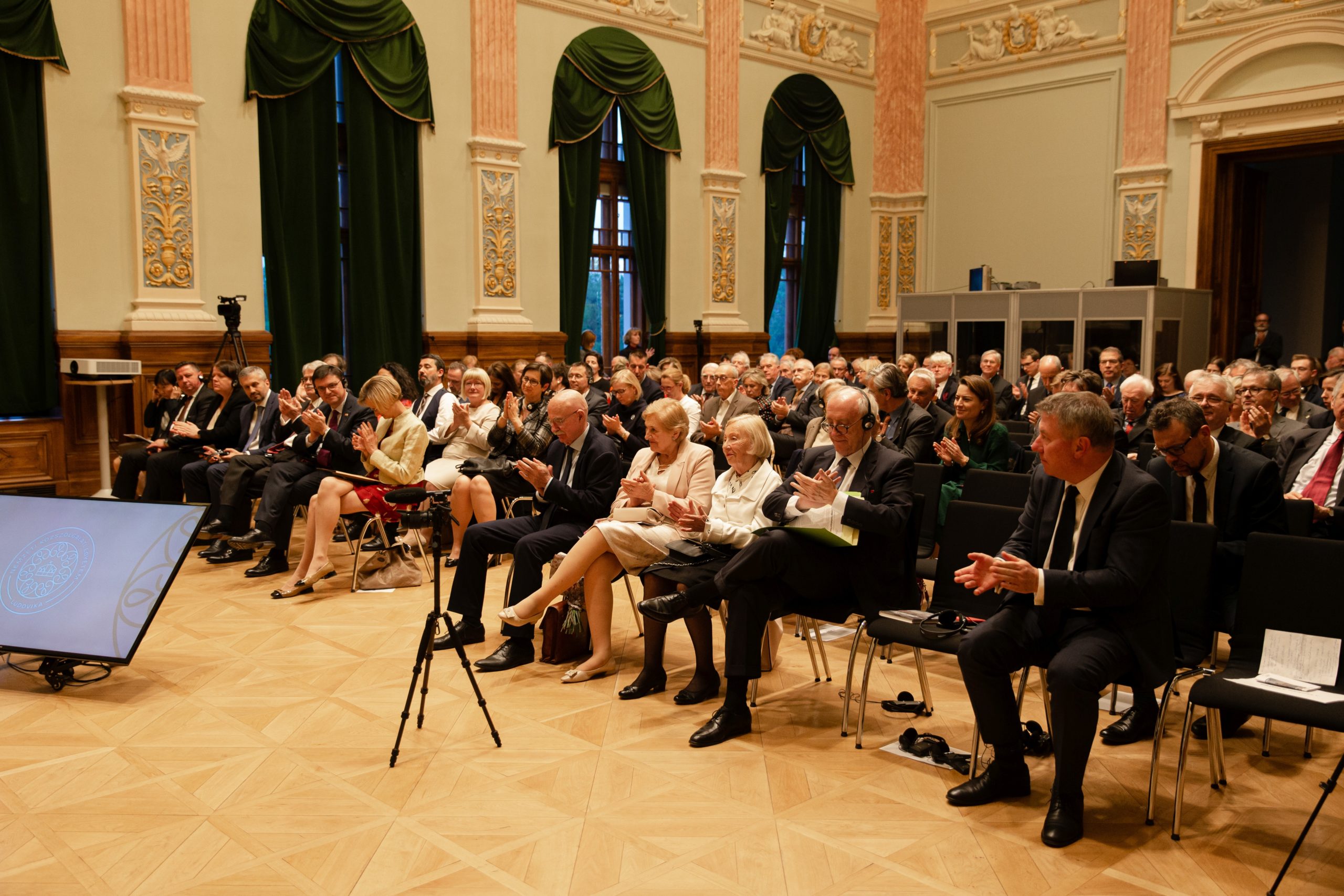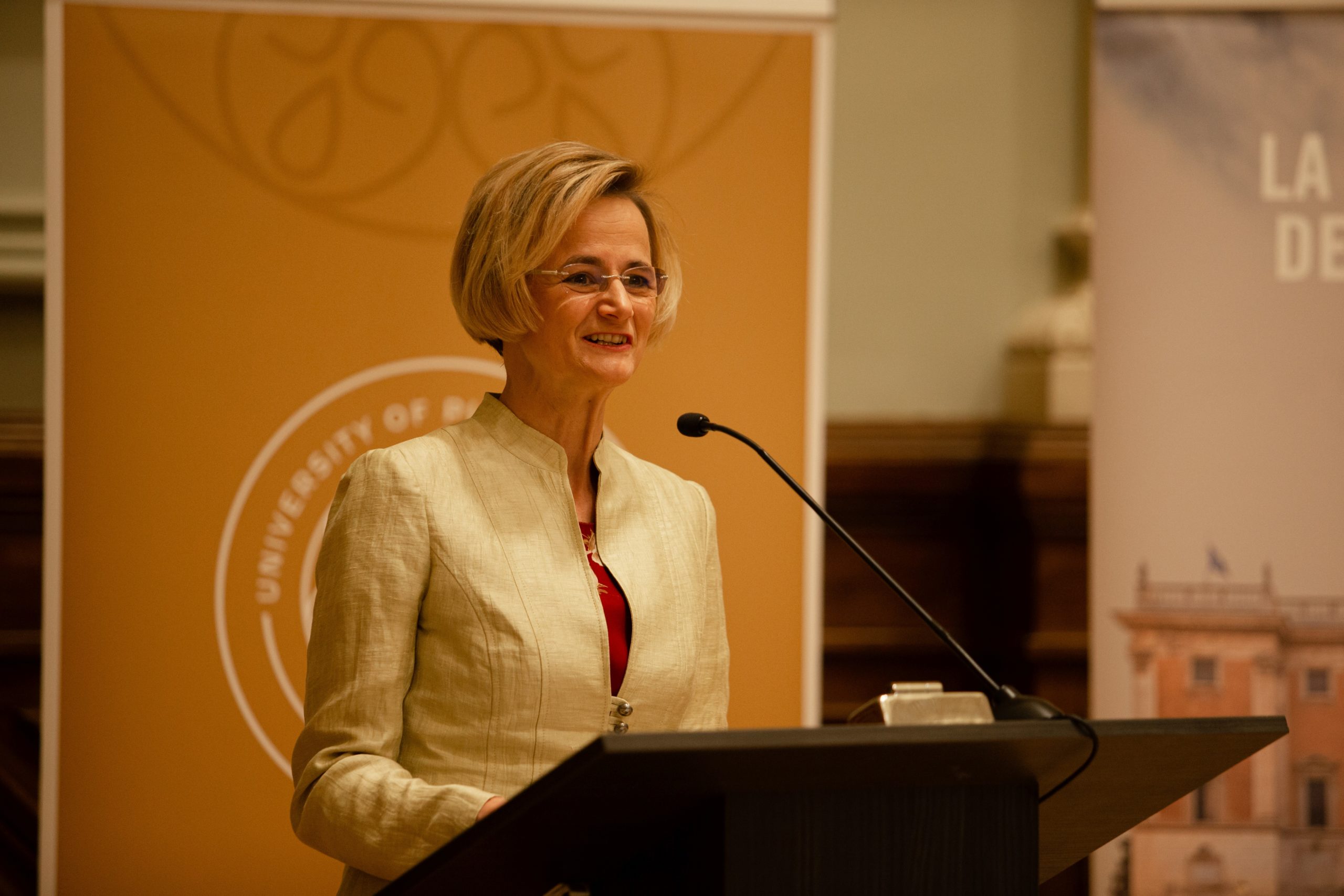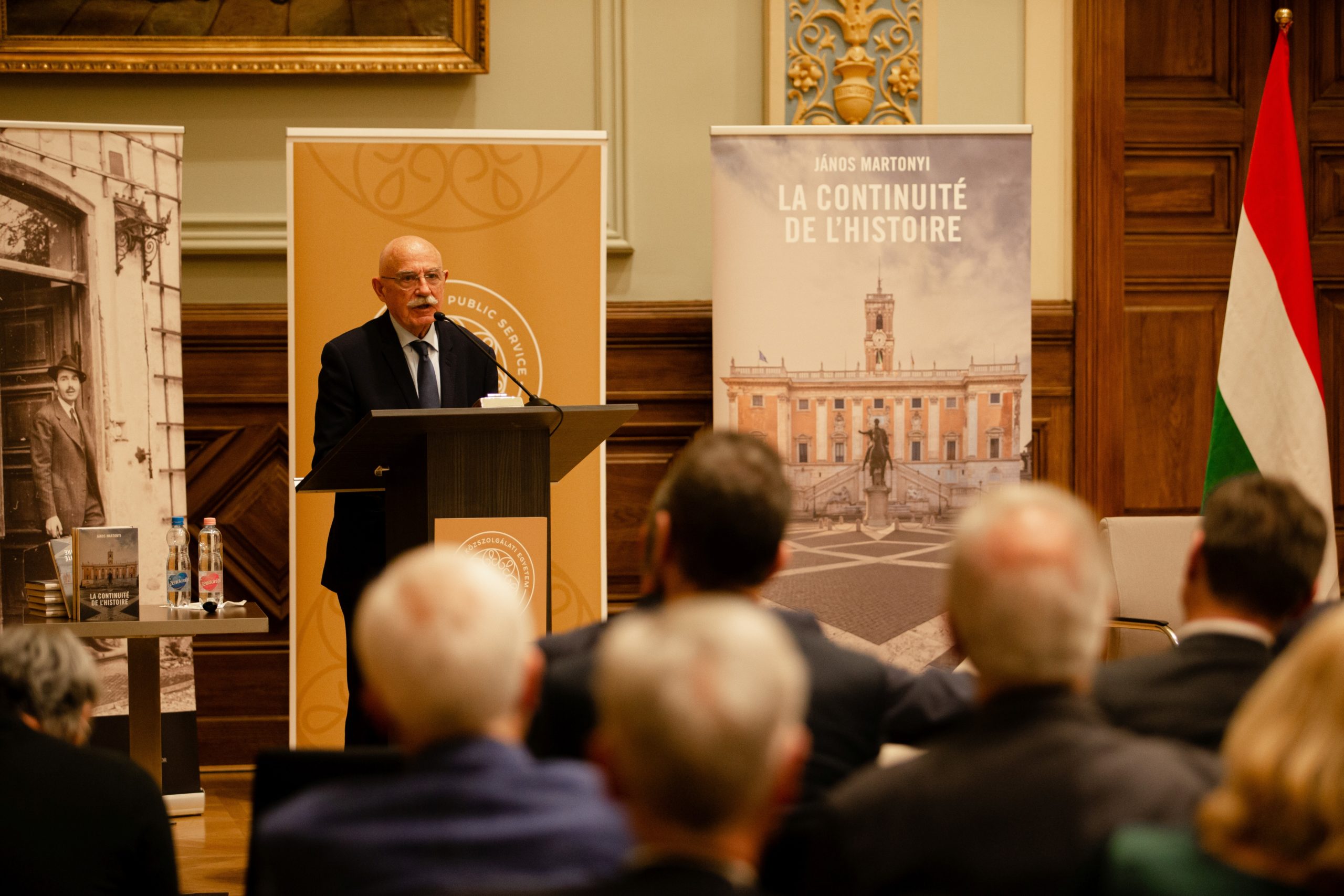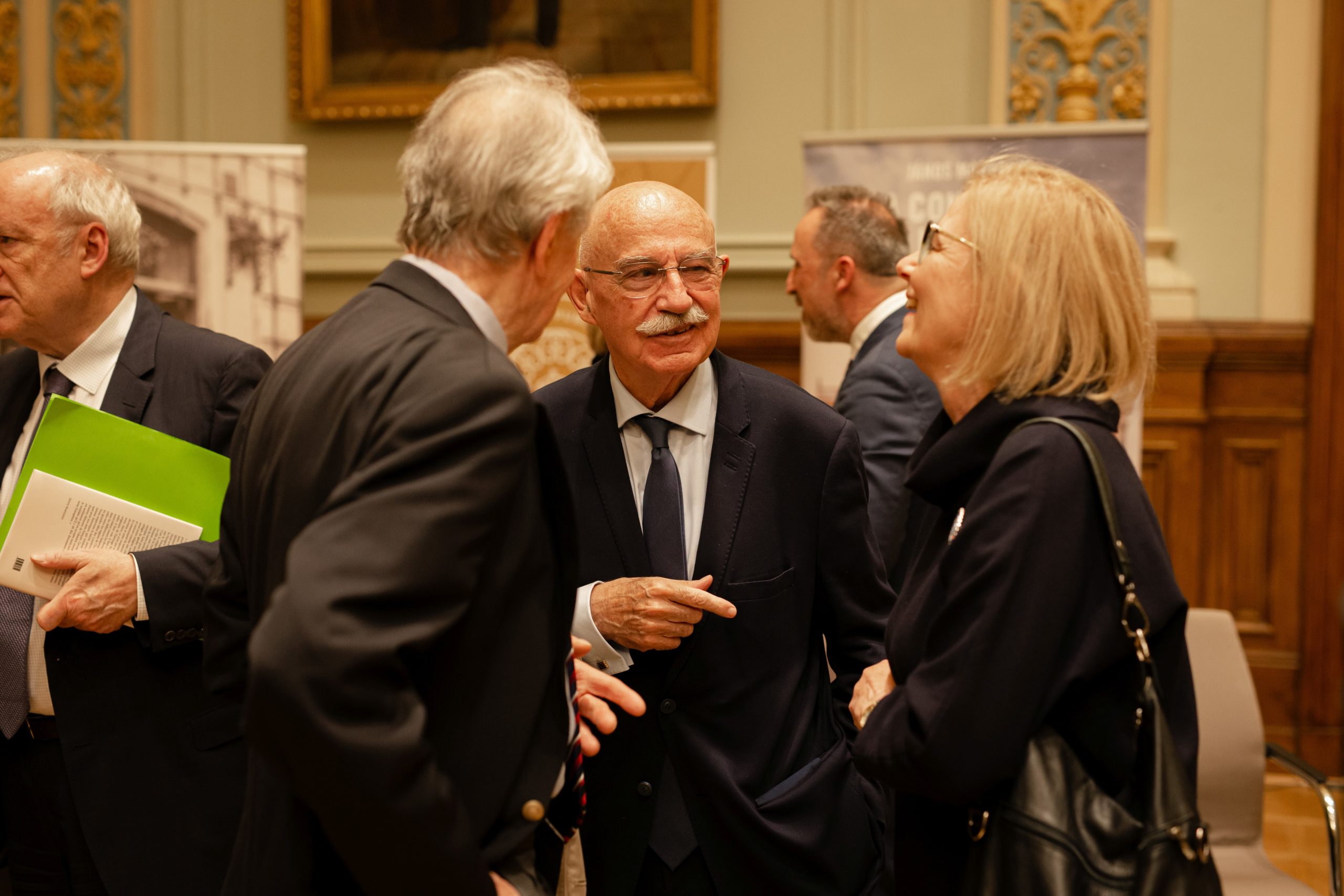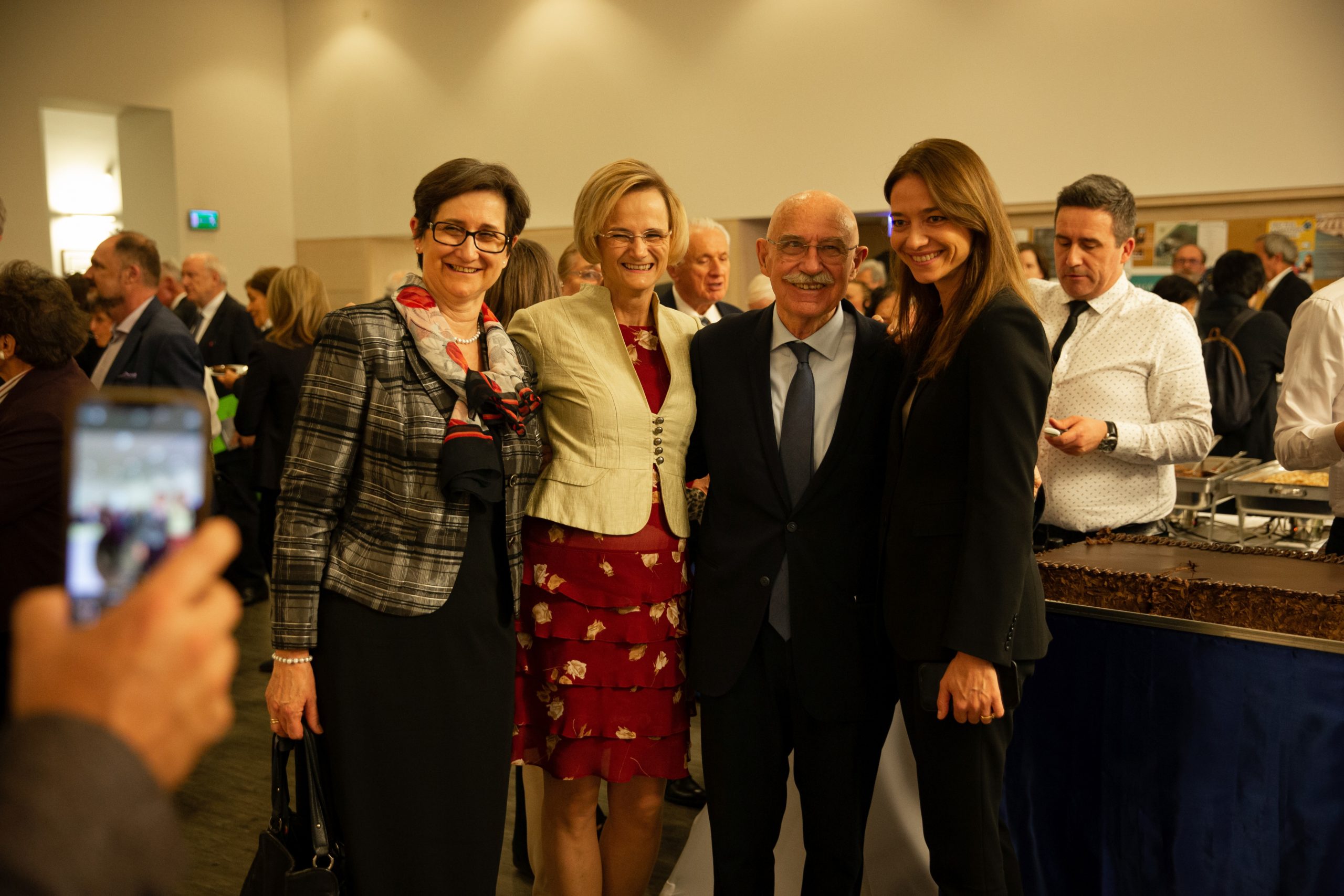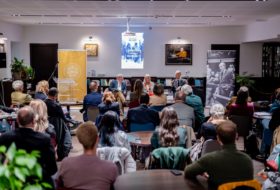Our Foundation, the Hungarian Civic Cooperation Association, and the hosting university marked János Martonyi’s birthday on 5 April with a book release. The event was attended by the former Foreign Affairs Minister’s friends, admirers, past colleagues, former French and Austrian counterparts, and many foreign diplomats.
János Martonyi: La Continuité de l’Histoire
Gergely Prőhle, head of the John Lukacs Institute of the Ludovika University of Public Service and director of the Otto von Habsburg Foundation, recalled his essay in the volume published for János Martonyi’s 70th birthday, in which he reviewed the celebrant’s activities as a lawyer; defending the Hungarian national interests, our region and consequently, the unity of Europe. Martonyi, born in Cluj during World War II, was 45 years old during the regime change and 60 when Hungary joined the EU. His fate, therefore, illustrates the continuity of history—La Continuité de l’Histoire—the titular idea of the volume. The cover image of the Capitoline is symbolic as well: it refers to the fundamental pillars of János Martonyi’s oeuvre: the legacy of ancient Roman law that shaped the spirit of Europe, Christianity and the Treaty of Rome that initiated the process of European integration in 1957.
Minister Gergely Gulyás, Head of the Prime Minister’s Office, commended the contribution of the private international law expert to forming a civil Hungary. His cooperation with Ferenc Mádl offered a credible alternative to Hungarian society after 1990 and decisively influenced Hungary’s European integration and transatlantic engagement, which Martonyi also represented on the global stage as Foreign Minister for nine years. One cannot think of oneself as “European” without simultaneously being “Hungarian, Polish, French or Austrian”, according to the politician, who argued that national identity and Europeanism are not mutually exclusive but rather complementary concepts. The basis of all this is law, which cannot be a tool for “political will-making”, he warned.
“Thumbing through the essays in this volume, the story of a community of values emerges almost as evidence from the inherent chaos of history, which we must recreate and reshape again and again so that we can remain worthy of its ideals”, —cautioned Pál Hatos in his address on the imperative of our community of shared destiny. Because the continuity of history—in Simone Weil’s words, its rootedness in time—is fragile, and each generation must work to preserve it, he stated. In János Martonyi’s person, a citizen familiar with history and a political actor who took action, he confronted the dilemmas of the relationship between freedom and democracy throughout his career.
Former French Foreign Affairs Minister Hubert Védrine recalled his conversations with the Hungarian Foreign Affairs Minister, which contributed to his understanding of “Central Europeanism”. He professes that this dialogue, along with Milan Kundera’s famous 1983 book, A Kidnapped West: The Tragedy of Central Europe, were the principal compasses for his insights into the region’s history.
The laudations were followed by a round table discussion with Benita Ferrero-Waldner, former Federal Minister for European and International Affairs of the Republic of Austria; Claire Legras, Ambassador of France to Hungary; László Trócsányi, Rector of the Károli Gáspár Reformed University and Zsolt Németh, Chairman of the Foreign Affairs Committee of the National Assembly. Gergely Fejérdy, Deputy Scientific Director of our Foundation, moderated the panel of speakers who praised the celebrant’s work. The meeting ended with a toast by Enikő Győri, MEP and President of the Hungarian Civic Cooperation Association.
Photos by Zoltán Szabó
